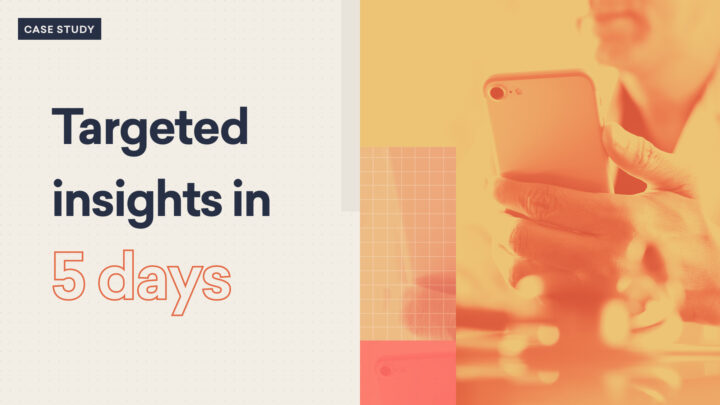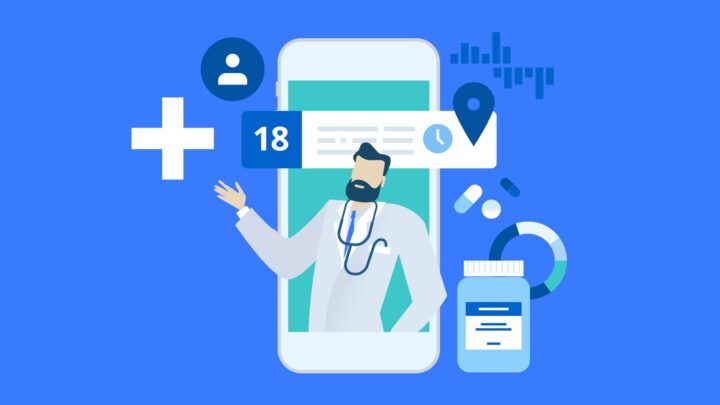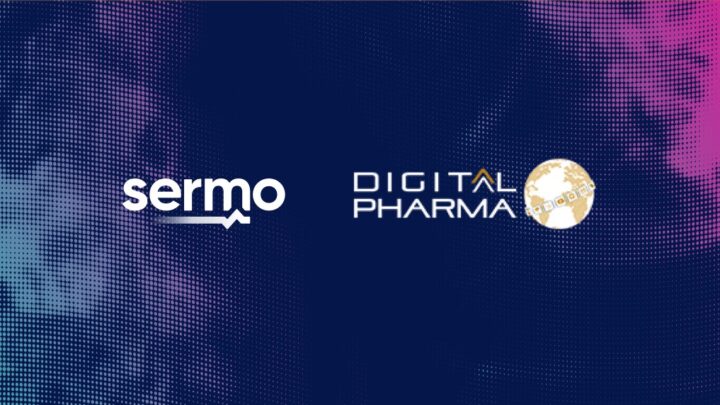
The digitalization of healthcare has boosted AI adoption. Marketers are now leading the way in using AI-powered technologies to gather actionable insights from healthcare professionals. These insights help shape and drive pharmaceutical brands’ strategies throughout the entire product life cycle.
But amid all these changes, questions rise about how physicians are adopting these technologies and what concerns they may have when it comes to market research and advertising targeted to them by pharmaceutical manufacturers.
To address these questions, we’ve turned to insights gathered by Sermo’s RealTime technology from 2 studies of 500 verified physicians who are active survey takers across North America, EU5, and APAC regions1. These physicians also represent a mix of primary care and key specialties where Sermo conducts the highest volume of market research activities. Let’s hear from our physicians, including a few members of our Medical Advisory Board!
Q: What are the professional adoption rates of AI among physicians?
A: 74% of physicians use AI-powered technologies daily, particularly in EHR systems and telemedicine.
This high adoption rate highlights the growing integration of AI in healthcare settings where technologies like EHR systems utilize AI to identify patterns in symptoms and test results, predict patient outcomes, and personalize treatment plans. Telemedicine platforms also leverage AI to connect patients with right providers based on criteria such as symptoms and specialties. The widespread use of AI not only enhances efficiency but also significantly improves patient care and treatment personalization.
Q: How do physicians feel About AI in their personal and professional lives?
A: Physicians generally have a more favorable opinion of AI in their personal lives (82%) compared to their professional lives (70%).
This disparity might be attributed to the greater familiarity and firsthand benefits experienced with personal AI technologies, such as virtual assistants and smart home devices. In contrast, professional AI applications are still evolving, and there may be more hesitancy due to privacy concerns and the complexity of medical tasks. However, as physicians become more accustomed to using AI in their professional settings and witness its potential benefits, there is significant potential for increased adoption and positive sentiment in the future.
“In obstetrics, the EMR is now able to calculate the risk of a patient having a postpartum hemorrhage and will alert the staff when the patient gets admitted whether we need to order blood or other backup methods. Across the entire hospital, a sepsis alert has been implemented based upon data points that are captured from our notes, the patient, labs and will alert throughout the hospital if the patient becomes at risk for sepsis – so far, it’s been very helpful in increasing safety.” Dr. Monica Kapoor, MD FACOG OB/GYN, Sermo Medical Advisory Board Member
Q: How do physicians prefer AI to be used in market research?
A: Physicians prefer AI to be used behind the scenes, such as in survey development (84%), rather than interacting directly with AI bots during surveys (66%).
Survey results indicate that while physicians are open to AI’s role in enhancing research methodologies, they favor applications where AI operates in the background. There is a strong emphasis on the importance of transparency and consent, with 83% of physicians agreeing that researchers should disclose AI usage and 80% believing that AI applications in market research should require respondent consent. This preference underscores the need for ethical practices and clear communication in implementing AI in market research.
“I think as a person who responds to market research and participates, I would want to know [if AI is being used] because I would probably word my responses a little differently in a way that wouldn’t be misinterpreted or misunderstood if I knew that it was being categorized and classified by computer. [I would make sure to use] more specific words that can’t be misinterpreted.” – Dr. Heidi Moawad, MD, Sermo Medical Advisory Board Member
Q: How important is personalized AI-driven advertising to physicians?
A: Personalized content created by AI is highly valued by 65% of physicians, making it crucial for engaging and meaningful advertising.
This high level of interest indicates that physicians appreciate advertising that is tailored to their specific needs and practices, as it enhances relevance and effectiveness. In contrast, there is less interest (46%) in AI being used for med-legal reviews, suggesting that while AI is seen as beneficial for creating personalized content, its role in more administrative or legal tasks is viewed as less critical. This highlights the importance of using AI to deliver targeted, relevant information to physicians.
Q: Why is human interaction still crucial in AI integration?
A: Despite the advantages of AI, 53-55% of physicians prefer human representatives over AI bots, highlighting the importance of building relationships and trust through human interaction.
These findings highlight that while AI can enhance efficiency and support various tasks, it cannot fully replace the human element that is essential for developing strong professional relationships. Human representatives play a crucial role in understanding nuances, providing personalized communication, and fostering trust—key aspects that AI currently cannot replicate. Therefore, the potential for AI lies in augmenting rather than replacing human roles, particularly in areas like sales and medical liaison where personal interaction is vital.
“For quick, administrative tasks – there is no need to bother with a human. However, when it comes to forming a meaningful relationship with a rep, you can’t replace the human interaction with AI. They become confidantes and we feel like a human can actually make things happen whereas with AI, you don’t know if it’s received nor heard. Also, I’m not having dinner with AI, just yet!” – Dr. Kyle Lee BMLSc, BMBS, MPH, CCFP, Sermo Medical Advisory Board Member
As physicians continue to explore and adapt to AI technologies, the emphasis on transparency, personalized content, and maintaining human connections will be essential. By understanding and addressing these key factors, we can ensure that AI serves as a powerful tool to ultimately enhance patient outcomes.
On behalf of Sermo, thank you for checking out our blog post on HCP Perspectives on AI in Market Research & Advertising. This is just one of the many examples of how we can inform digital strategies from our global panel of HCPs and healthcare experts.
At Sermo, we turn physician experience, expertise, and observations into actionable insights for the global healthcare community. Engaging with more than 1.5 million HCPs across 150 countries, we provide physicians and providers with a social platform that fosters impactful peer-to-peer collaboration & discussions about issues that are important to them and their patients. Sermo offers on-demand access to physicians via a suite of proprietary technology to provide business intelligence that benefits pharmaceutical, healthcare partners and the medical community at large.
Interested in learning more? Check back any time and follow us on Facebook, Twitter and LinkedIn for the latest and greatest in healthcare insights.
To explore our exclusive business solutions, please visit us at sermo.com/business or email us at business@sermo.com.
1 The insights sourced are from two recent studies fueled by Sermo’s proprietary RealTime technology
- AI in Market Research Study: Fielded February 19-27, 2024. Each participant has participated in at least 3 quantitative survey in the past year and 1 qualitative interview.
- AI in Advertising Sample: Fielded May 15 – 20, 2024














